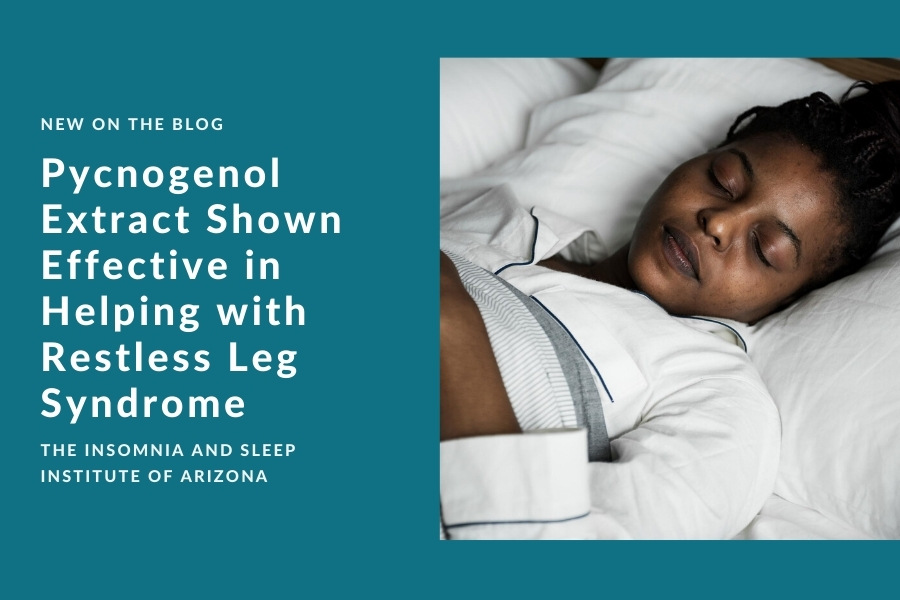Restless leg syndrome (RLS) is an uncomfortable condition that makes it irresistible to move the legs. RLS is also known as Willis-Ekbom disease and can start at any age, but typically gets worse as the patient gets older. It most often happens at night or in the evening, making it difficult to fall asleep or stay asleep. Moving the legs temporarily helps with the discomfort, but if you struggle with RLS you deserve a more effective form of management. The Insomnia and Sleep Institute of Arizona treats all sleep conditions including RLS, adopting conservative measures first whenever possible. For RLS this can mean lifestyle changes and, according to the latest research, perhaps supplements.
According to research recently published in Panminerva Medica, Pycnogenol French maritime pine back extract has been shown to “significantly relieve and prevent symptoms associated with restless leg syndrome.” Pycnogenol comes from a tree that grows in France and is full of bioflavonoids, phenolic acids, and procyanidins. The spokesperson for Pycnogenol, when addressing the newly found benefits of the extract, stresses, “Restless leg syndrome is often missed or dismissed in diagnosis, but it’s a real health condition often rooted in microcirculation.”
RLS Study Results
The study included 45 people with RLS. About half of them (21) received 150mg of Pycnogenol daily while 24 received the common treatment (non-supplemental) for RLS. After one month, those in the Pycnogenol cohort had responded with “significant improvement in all prominent symptoms of restless leg syndrome.” This included, according to the authors, a 72 percent decrease in “aching” (compared to 3 percent in the control group), a 63 percent decrease in “throbbing” (versus 6 percent in the control group), and a 61 percent decrease in “sleep problems” (compared to just a 16 percent decrease in the other cohort).
Additionally, the supplement group enjoyed a 52 percent decrease in “electric shock sensations” (versus 17 percent), a 48 percent decrease in “itching” (versus 10 percent), a 41 percent decrease in “pulling” (versus 7 percent), a 33 percent decrease in “crawling” (versus 3 percent), and a 30 percent decrease in “creeping” (versus 7 percent). Plus, in just four weeks, need for “pain management” was “significantly reduced” for those receiving Pycnogenol.
Managing RLS
According to the authors of the study, even when restless leg syndrome is properly diagnosed, medication to treat the condition includes pharmaceuticals that increase dopamine in the brain, resulting in side effects like nausea and sleepiness. Opioids or narcotic medications may be used to relieve more severe symptoms and can be extremely addictive.
You can find Pycnogenol in over 1,000 current supplements and health products around the globe. For those looking to avoid or stop use of drugs such as opioids, this might be a great solution to a very common sleep condition.
Current Management for RLS
The first step in managing RLS is determining a root cause (if any). In some cases, an iron deficiency can cause RLS, so an iron supplement can relieve symptoms. Lifestyle changes are also a standard treatment for RLS, including sleep hygiene best practices like a warm bath before bedtime. Working with a leading sleep expert team is the key to quality sleep and managing any sleep disorder, including RLS.
When you book a consultation with The Insomnia and Sleep Institute, your first meeting is with a sleep expert who can diagnose sleep disorders. This is the first step in treatment and management. Conservative measures first, such as natural supplements, are the key to achieving results that can be sustained. To learn more or schedule your consultation for RLS, contact our office today. Call The Insomnia and Sleep Institute during business hours or fill out the online contact form for the quickest response.





